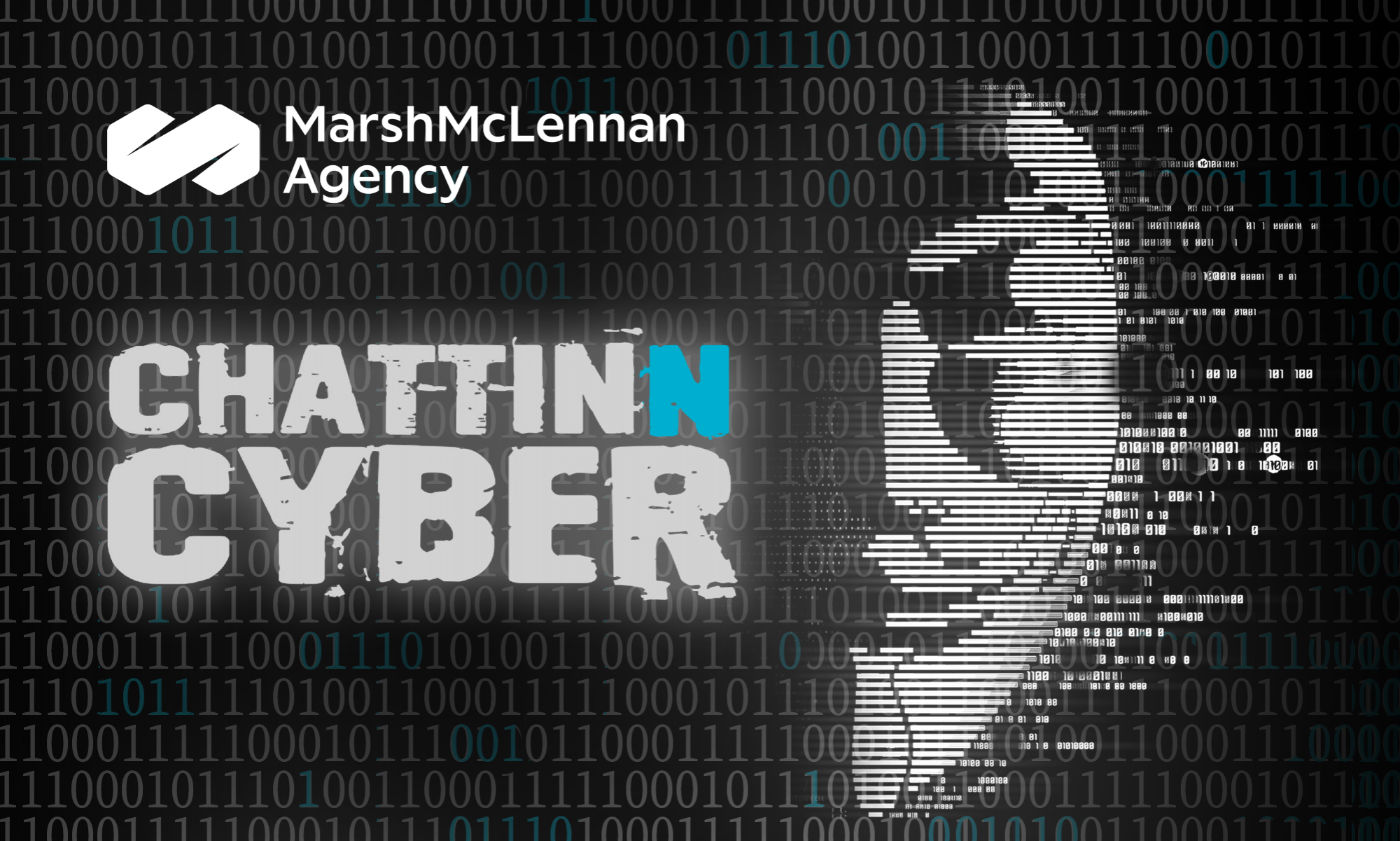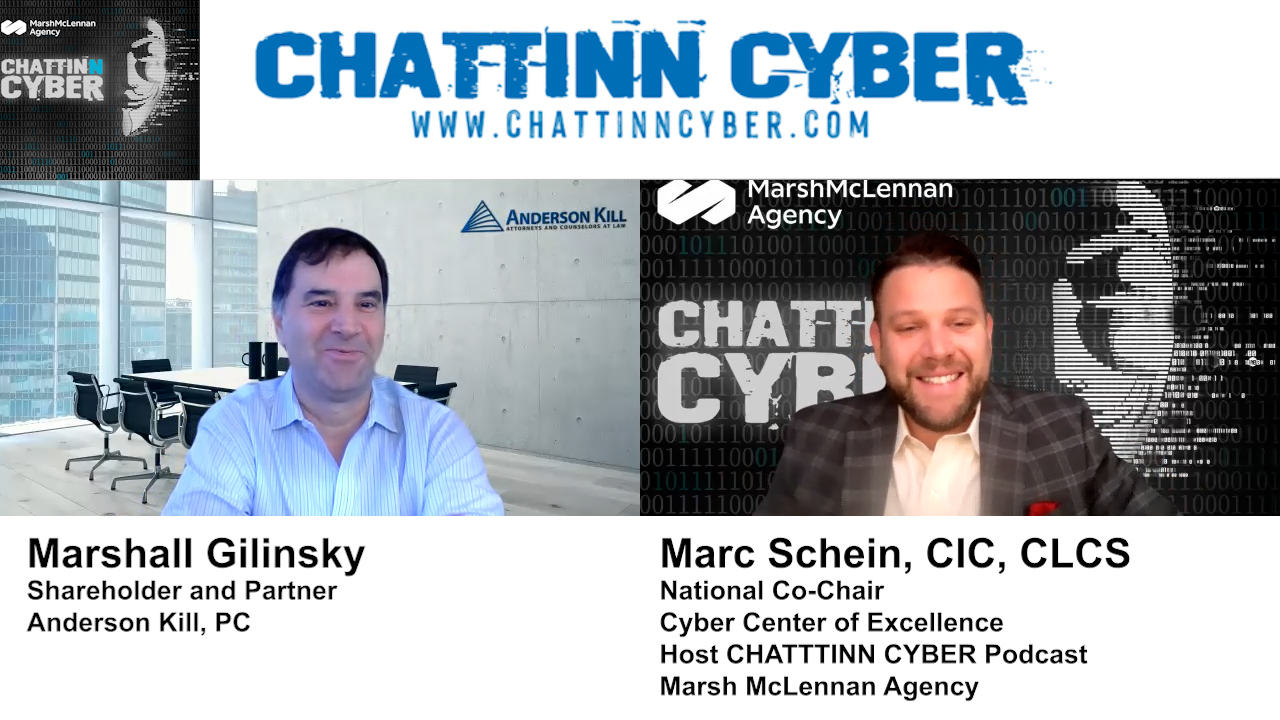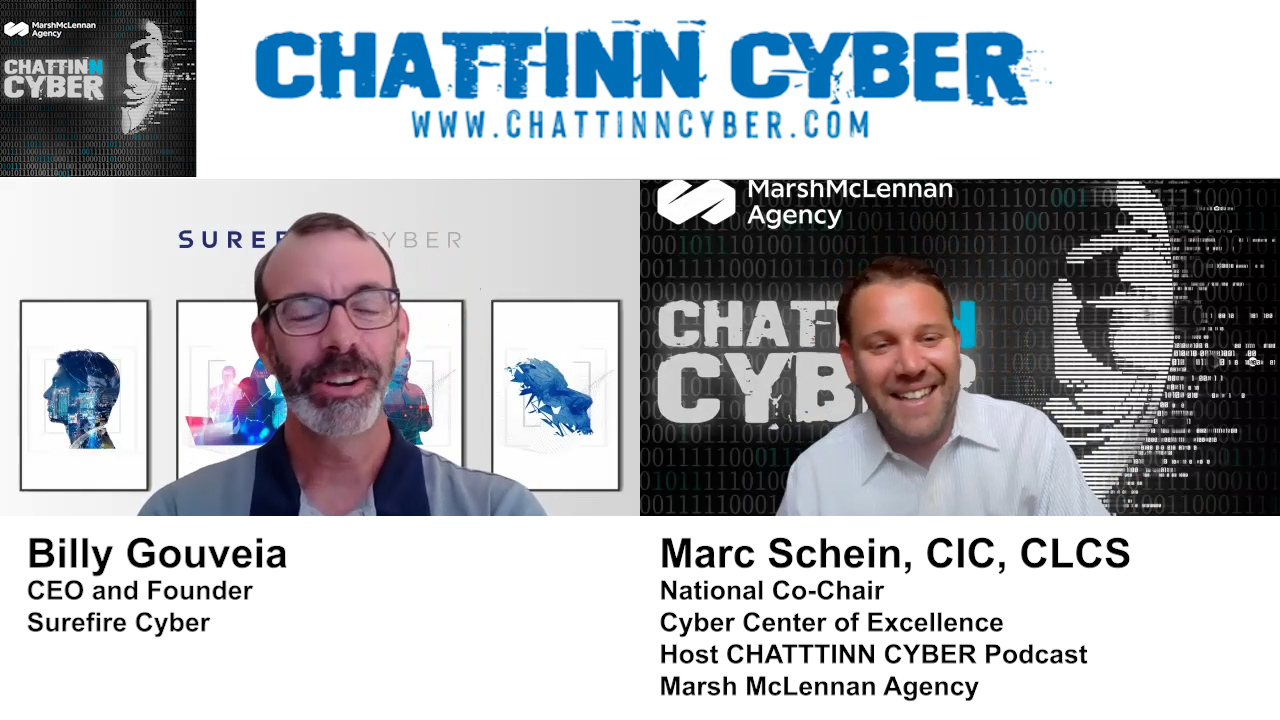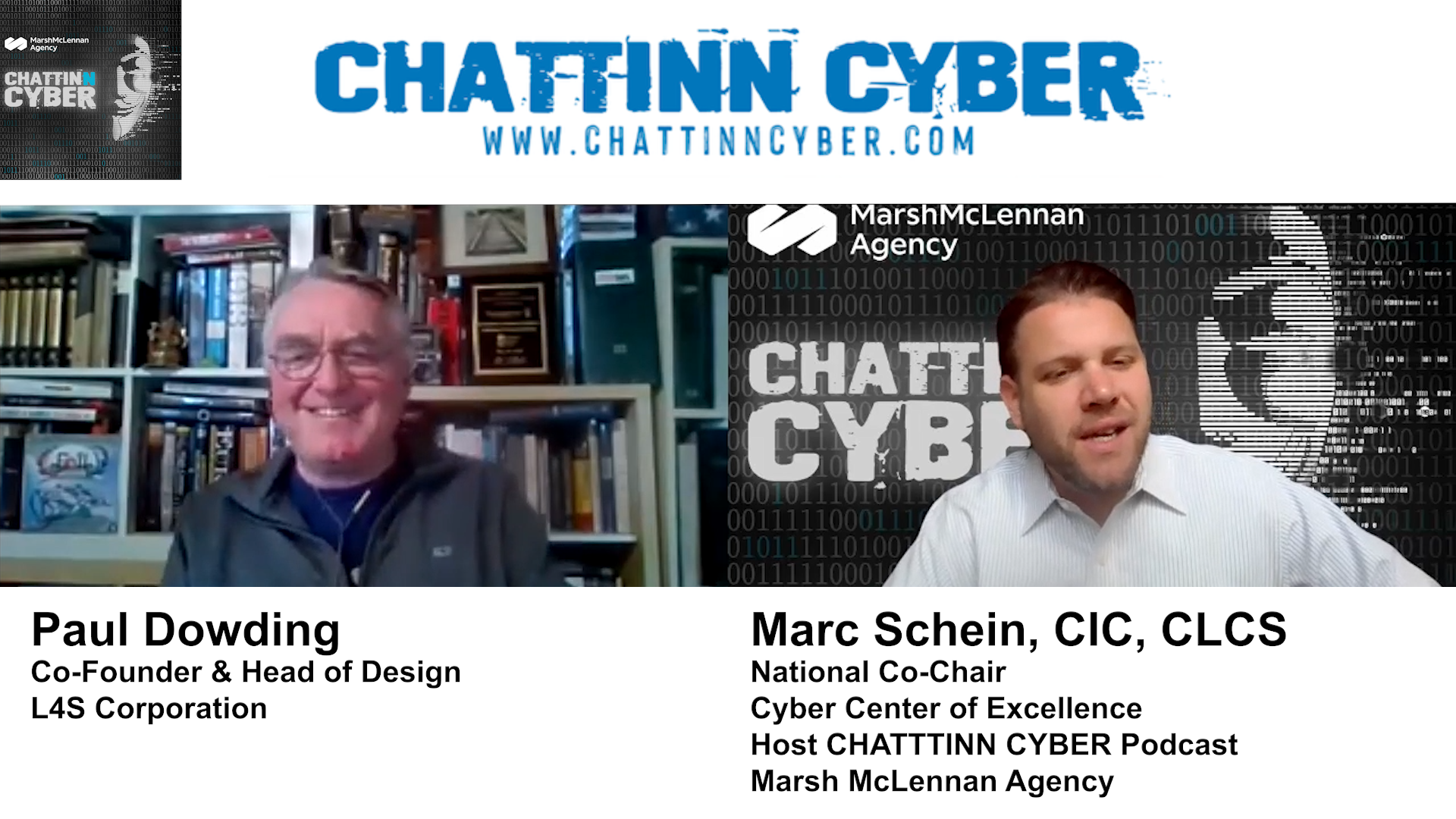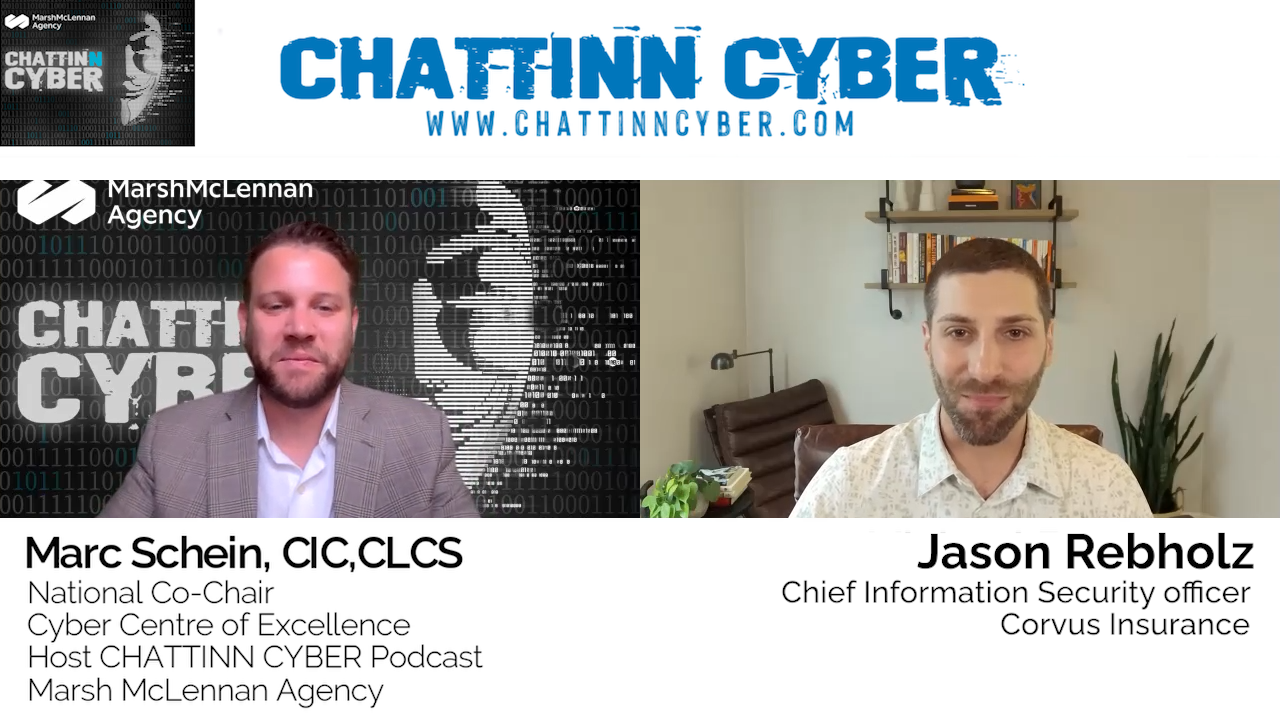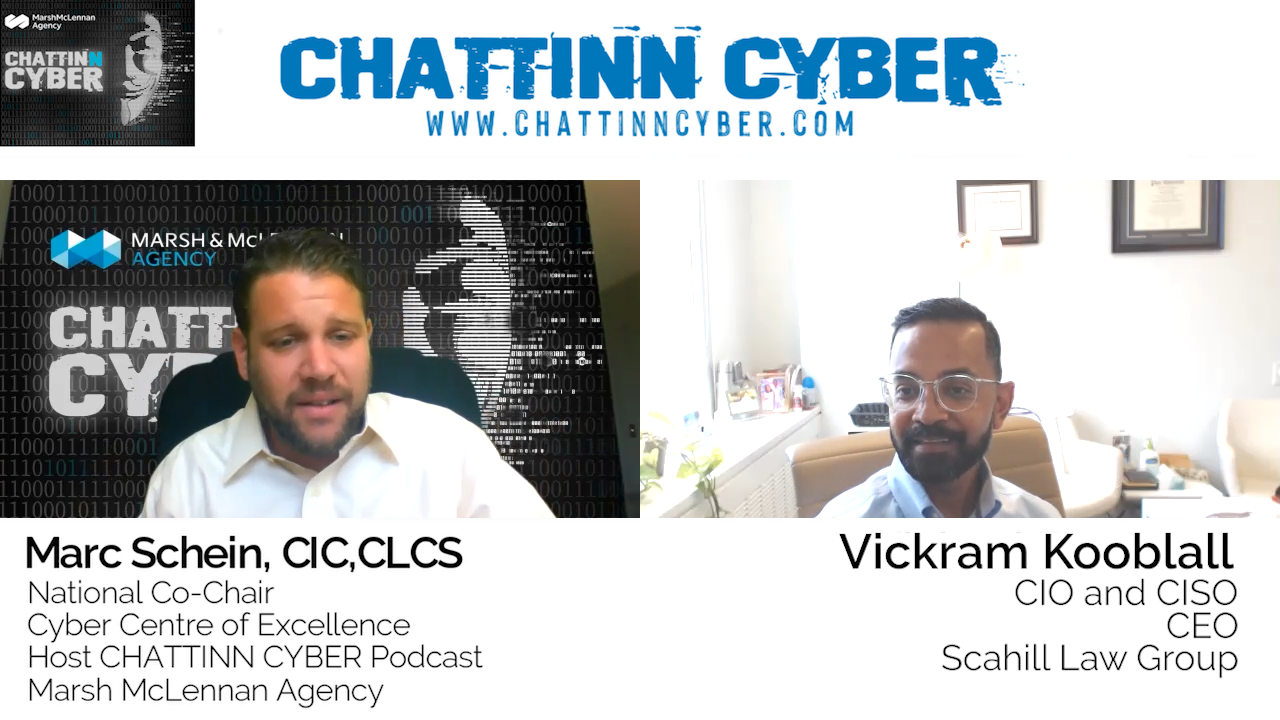Podcast: Play in new window | Download (Duration: 13:04 — 18.0MB)
Subscribe: RSS
Summary
In this episode of Chattinn Cyber, Marc Schein is chattin’ with Marshall Gilinsky, a partner at Anderson Kill, PC, focusing on the impact of artificial intelligence across various industries, particularly in insurance.
Marshall shares his background and explains how his interest in AI developed over time. He expresses his fascination with the technology, emphasizing its potential benefits and risks. Marshall believes that AI has the capacity to revolutionize numerous tasks and industries, but he also stresses the importance of understanding and regulating AI to ensure its safe and productive use.
The discussion then shifts to instances of AI misuse, where Marshall recounts a case involving a lawyer who relied solely on AI to draft legal briefs. This reliance led to significant failures and embarrassment for the lawyer, highlighting the need for caution and responsible use of AI to prevent similar mishaps in the future.
Mark inquires about the implications of AI for the insurance industry and seeks advice for policyholders. Marshall explains that while AI is a powerful new tool, it can both enhance and harm insurance operations. He notes that current insurance policies lack specific provisions for AI-related claims, advising policyholders to remain vigilant about potential risks associated with AI technologies.
The conversation progresses to the topic of AI regulations and future predictions. Marshall discusses the ongoing efforts by regulators to understand and ensure the safe development of AI. He emphasizes the necessity of balancing business interests with the protection of policyholders and investors. Although he acknowledges the challenges in making accurate predictions about AI’s future, he remains hopeful for conscientious engineering practices that prioritize safety and responsibility.
In closing, Mark thanks Marshall for his valuable insights and expresses interest in continuing the dialogue. Marshall appreciates the opportunity to discuss AI and mentions his ongoing learning and exploration in this rapidly evolving field. Overall, the episode underscores the importance of understanding and managing the risks and benefits associated with AI, particularly within the insurance sector.
Key Points
- Fascination with AI: Marshall expresses a deep interest in AI, highlighting its transformative potential across various industries. He emphasizes the need to understand both the benefits and risks associated with AI technologies.
- Cases of Misuse: The discussion includes real-world examples of AI misuse, such as a lawyer who relied solely on AI for drafting legal briefs, which resulted in failure. This underscores the importance of caution and responsible use of AI.
- Impact on Insurance: AI is described as a double-edged sword in the insurance industry. While it can enhance operations, it also poses risks. Marshall notes that current insurance policies often lack specific provisions for AI-related claims, urging policyholders to be aware of these potential risks.
- Need for Regulation: The conversation highlights the ongoing efforts by regulators to understand AI and ensure its safe development. Marshall stresses the importance of balancing business interests with the protection of policyholders and investors.
- Challenges in Prediction: Marshall acknowledges the difficulty in making accurate predictions about the future of AI. However, he expresses hope for responsible engineering practices that prioritize safety and ethical considerations.
- Continuous Learning: Ongoing education and exploration in the field of AI is important and reflects the rapidly evolving nature of the technology and its implications.
- Responsible Use: The conversation reinforces the need for a cautious approach to AI, advocating for responsible use to mitigate risks and maximize benefits in various applications, particularly in sensitive areas like insurance.
Key Quotes
- On Fascination with AI: “The potential for benefits to society from… using AI in all sorts of tasks across the world, economic, personal, etc., are mind boggling. While at the same time the potential for harm is of great concern.”
- On Misuse of AI: “There was a lawyer, who… relied exclusively on AI to draft some briefs. The chat bot basically wove the brief out of whole cloth, making up the facts and the law… It ends up being a magnificent failure.”
- On the Impact of AI in Insurance: “It just seems at this point to present as a new type of thing that can go wrong and lead to a very common sort of insurance problem.”
- On Regulation: “Everyone’s kind of learning together… businesses are trying to develop these tools in a way that enhances their operations and their profitability, and regulators are out there trying to make sure that it’s done in a way that’s safe.”
- On Predictions for AI’s Future: “I think there’s a lot of conscientious engineers out there that are trying to do things in a way that’s safe and productive… But we live in a capitalistic marketplace where there’s strong incentives to build the biggest, baddest, most productive thing you can.”
- On Continuous Learning: “I’m constantly talking to people to find out new things that are happening… because there’s constantly new things that are emerging all the time.”
About Our Guest
Marshall Gilinsky is a shareholder at Anderson Kill’s Boston office, specializing in Insurance Recovery and Commercial Litigation. He co-chairs the firm’s Sexual Harassment and Abuse Insurance Recovery Group and the Sports, Media, and Entertainment Group, while also being a member of the Banking and Lending Group and the Restaurant, Retail & Hospitality Group. With over 20 years of experience representing policyholders, Marshall has recovered hundreds of millions of dollars through successful litigation of complex insurance claims, including those related to high-profile events like 9/11, Hurricane Katrina, and Superstorm Sandy. He also assists clients with captive insurance companies, focusing on resolving coverage disputes with reinsurers. Known for his deep understanding of clients’ businesses and insurance programs, Marshall frequently writes and lectures on insurance topics and is often quoted in major media outlets, including The New York Times and CNN.
Follow Our Guest:
About Our Host
National co-chair of the Cyber Center for Excellence, Marc Schein, CIC,CLCS is also a Risk Management Consultant at Marsh McLennan. He assists clients by customizing comprehensive commercial insurance programs that minimize the burden of financial loss through cost effective transfer of risk. By conducting a Total Cost of Risk (TCoR) assessment, he can determine any gaps in coverage. As part of an effective risk management insurance team, Marc collaborates with senior risk consultants, certified insurance counselors, and expert underwriters to examine the adequacy of existing client programs and develop customized solutions to transfer risk, improve coverage and minimize premiums.
Follow Our Host:
